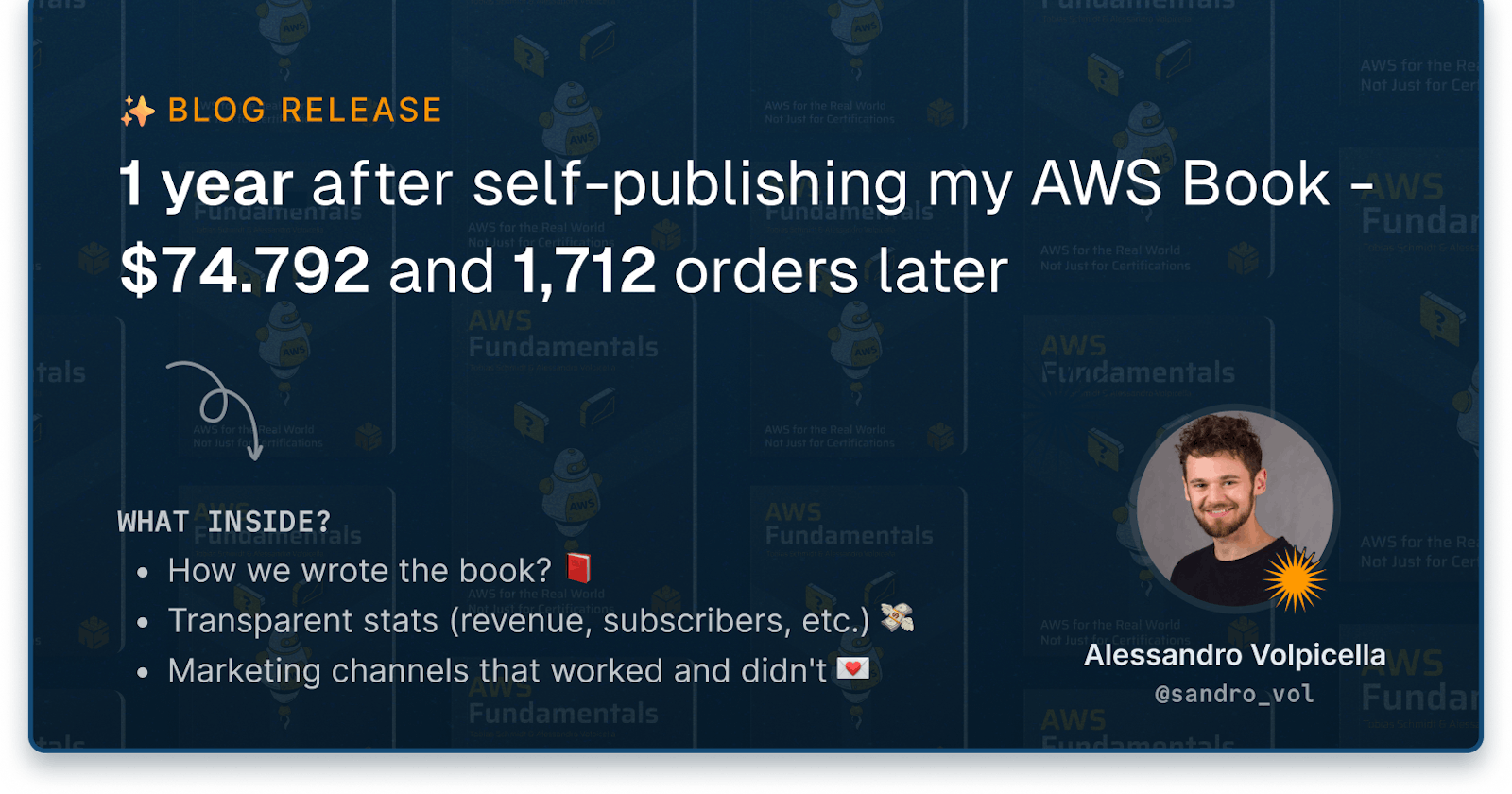1 year after self-publishing an AWS Book - $74,792 and 1,712 orders later
Hey 👋🏽
long time no see! Yesterday marked a special day in my calendar because exactly one year ago we published the book: AWS Fundamentals - AWS for the Real World.
It is a book aimed at developers, managers, and tech people, who want to learn more about AWS for the real world.
In this post I want to show you how much profit we made, what our approach was, and which marketing channels we've used.
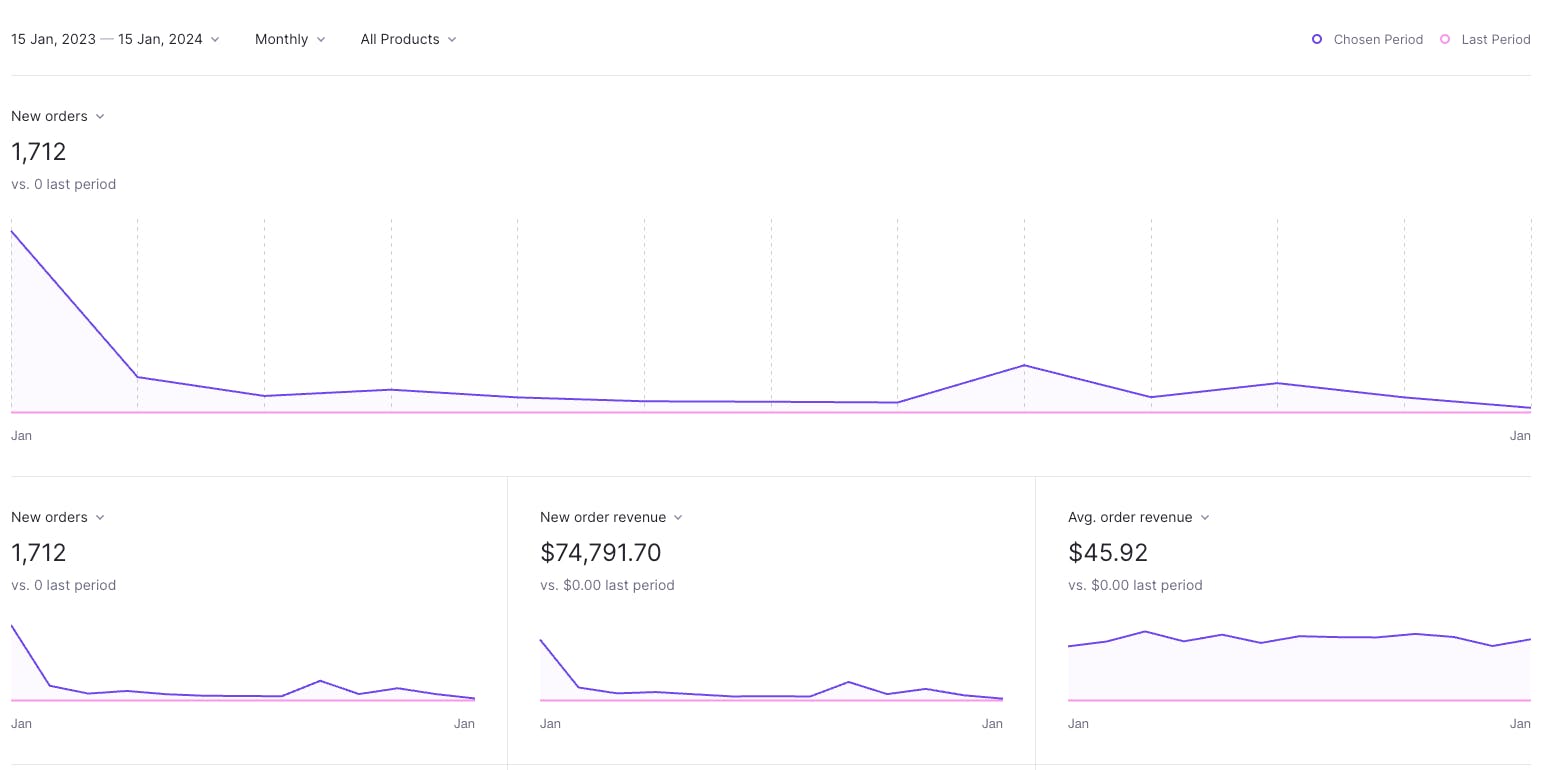
TLDR;
Orders: 1712
Revenue: $74,791.70
Revenue - Fees: TBC
Costs: ~$1,000 (ConvertKit)
I'll go through all channels how we sold the books and our thinking behind it. We don't track each sale granular, which means we're not sure of the biggest impact of each channel but we have a good idea (hint its email 😉).
Our Approach - Writing in Public / Launching multiple times
Let's start with the approach we took to write the book.
Our approach was based on doing everything in public. We talked about writing an AWS book very early on. I was reading a lot about how to tackle the whole writing process in the best way. The three best resources that helped us were the following:
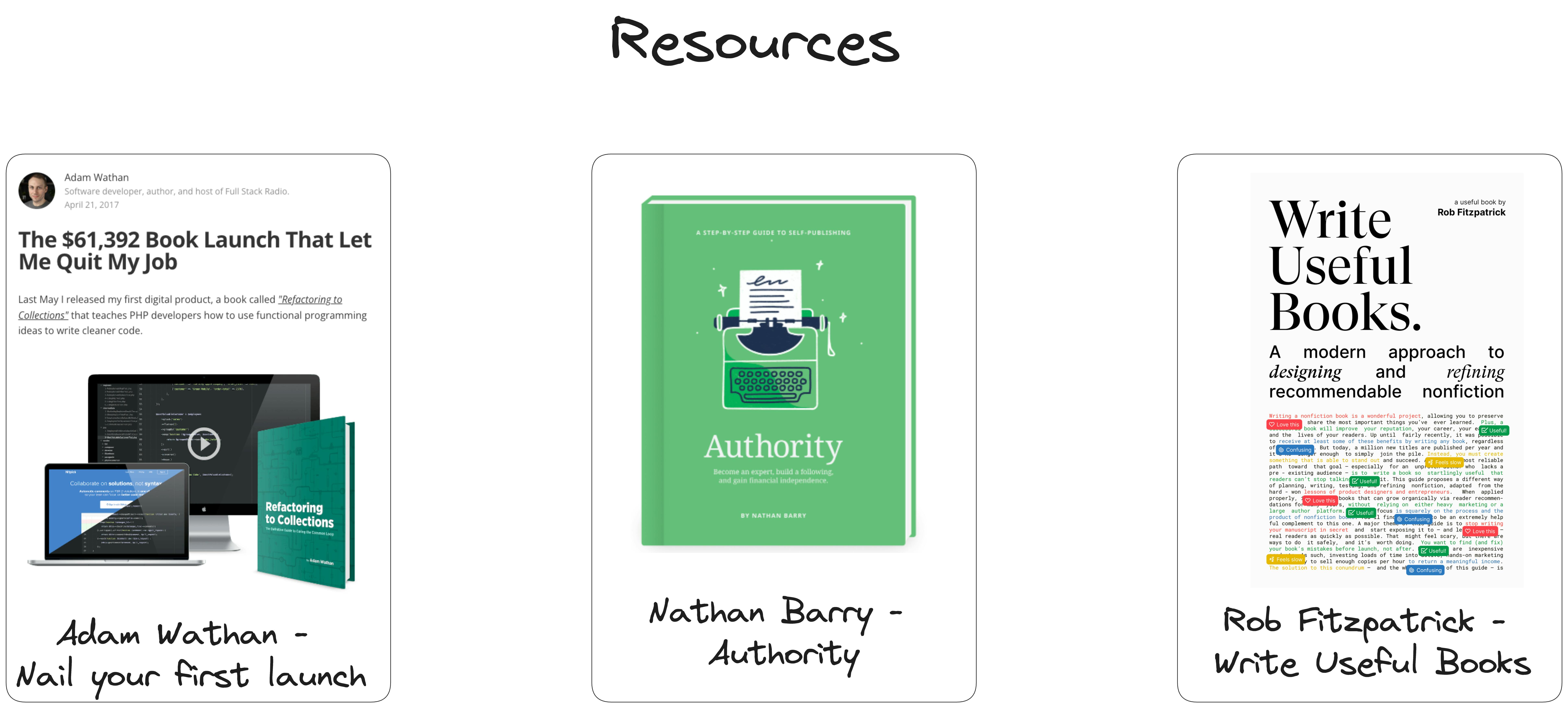
Adam Wathan's talk and blog post about Nailing your first launch
Nathan Barry's book Authority
Rob Fitzpatrick's book: Write Useful Books
All these resources heavily relied on the following things:
Incorporate users as early as possible
Do email marketing
Write useful books was much more about the actual writing style (speaking headlines, short sentences, only necessary things). I recommend the resources to everybody and I'm super happy that I found all of them.
Early Validation with a shitty landing page
The first thing we wanted to do: Validate
We created a very simple landingpage on carrd with an initial thought of the table of contents. We connected it to revue (RIP) and people signed up!

We started out with 500 subscribers but grew very quickly up to 2,000 subscribers! I can't show you any data, unfortunately, because Revue was purged by Twitter some time ago. Convertkit data will follow soon 😉
This validated it and we decided to write a book ✍🏽
Incorporate Beta Readers
Early on we invited very engaged users to read the book before we published it. This worked out not the way we wanted to.
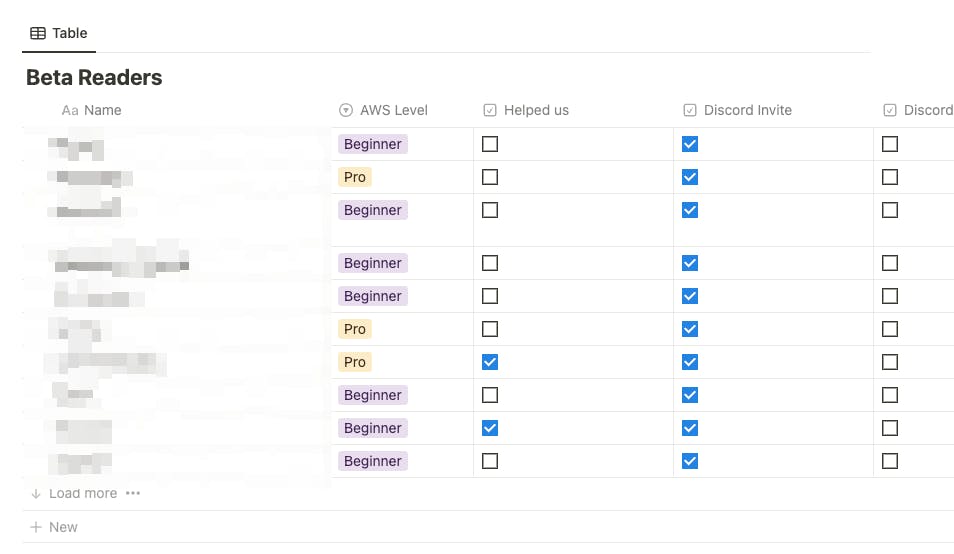
We had 2-3 very, very engaged readers which helped us a lot. All the other 20 or so readers didn't reply. The overhead was quite too large this is why we won't do it in the same way in the future.
Write in Public
We wanted to share as much as possible. Either on our blog, on Twitter, or via our newsletter.
One amazing benefit we got through writing in public is a shout-out from Jeff Barr! Jeff is a VP at AWS and he is the OG in creating technical content about AWS. He authored over 1,000 blog posts. Getting a shout-out from him gave us the biggest boost + credibility boost ever. We were very proud on that day 🥲.
Write, don't read
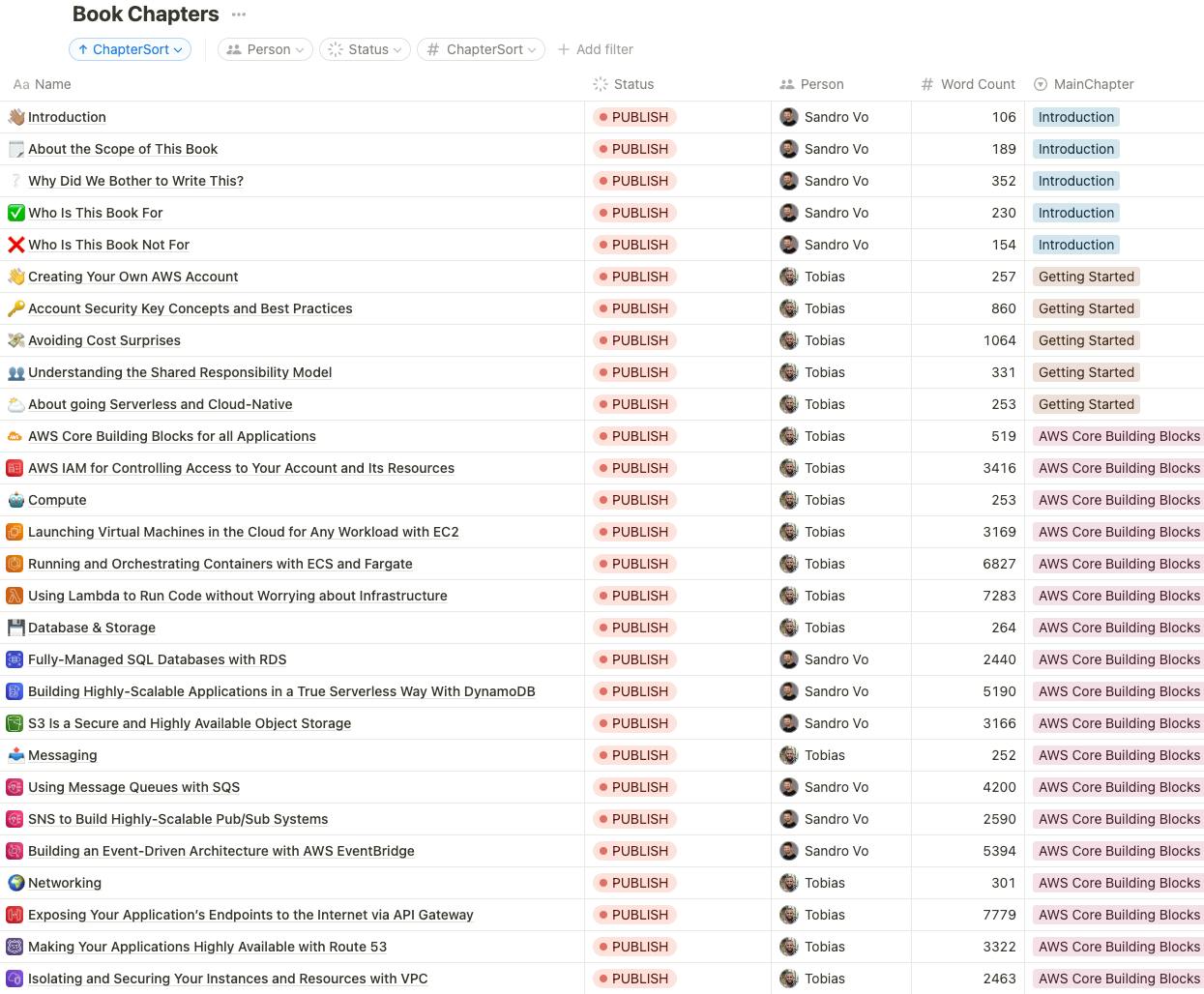
One approach Rob Fitzpatrick suggests in his book is to write the first drafts as fast as possible without re-reading and rephrasing them. With this approach, you feel very productive because you produced content.
Imagine writing 1,000 words a day. Even if they are shitty words and sometimes weird sentences, you wrote 1,000 words.
In contrast, if you wrote 500 words, rephrased them 54 times, and ended up with 300 words on paper you will feel like you didn't accomplish a lot.
It also helps to structure the whole book. Especially, if you write with two people it is hard to get one complete product in terms of structure, writing style, etc. If the chapters are "done" very early on it is much easier to discuss them.
Get help from people who did the same thing
I reached out on Twitter to some amazing writers who did the same thing. I contacted all AWS Book authors, Programming Book authors, and more self-publishers out there to get their tips. This helped tremendously. And I've met some very interesting people.
Marketing Channels
Which channels did work, which didn't?
TLDR;
Twitter: Good
Email: Amazing
SEO: No idea but we think okay
Affiliates: Good but not overwhelming
Twitter / LinkedIn
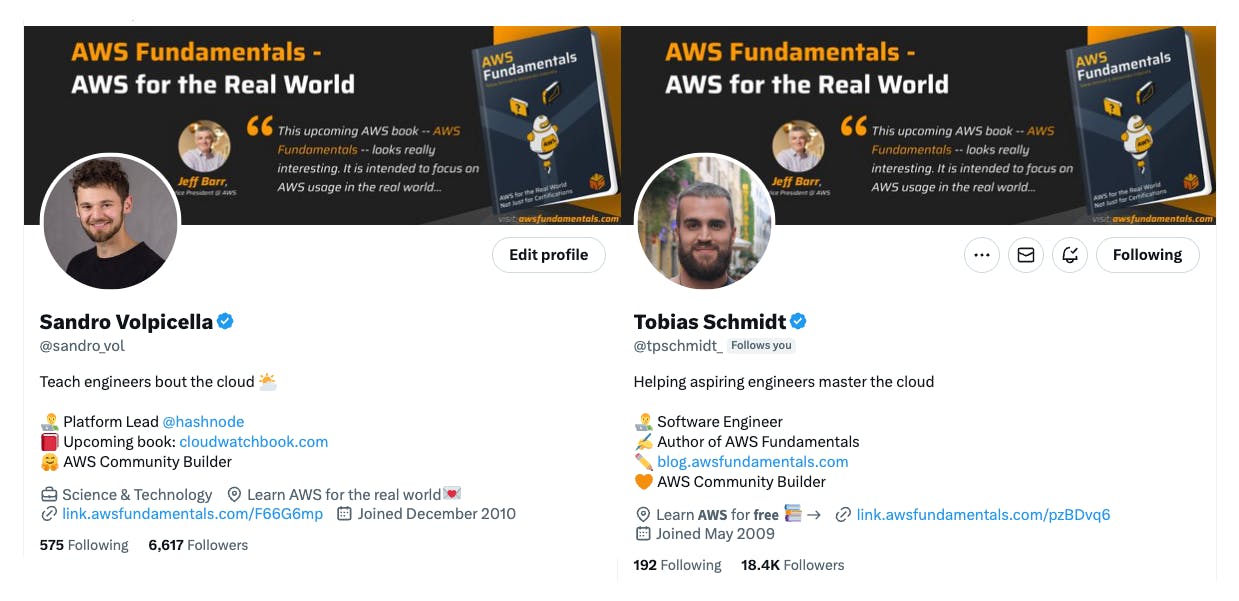
Our main presence is on Twitter and LinkedIn, but Twitter is much more. Especially, my co-author Tobias has a large following at that time of about 16k followers. I had about 5k followers.
Via Twitter we shared a lot of progress of the book. We always included CTAs to our landing page which had a waiting list form on it.
This channel works out quite well.
Newsletter
The second channel we've used is email marketing. Email marketing is key. Having a direct connection to the inbox of interested people is the best way.
This is by far the channel that worked out best.
Even in 2023, it is still the best-converting tool if you create great content. As mentioned we first used Revue but quickly changed to Convertkit after Revue was killed.
Convertkit is our main and only cost driver at the moment with $1,000 costs per year.
We could grow the newsletter to 3.448 subscribers to the day we launched our book (16th of January). This was amazing for us!

We also used the email platform to share exclusive content, sample chapters, and insights into the progress.
Sales Sequences
Throughout the year we have optimized our email platform quite a bit. We are tagging our users if somebody bought the book or not. We never want to annoy somebody with sales emails in case they already bought the book.
If they haven't bought the book we add users to a sales sequence. Throughout 6 months the users will get some discounts for our book (15%, 25%, 50%, 75%).
We also dynamically include some sales data in our newsletters, without being too annoying.
Today our newsletter has almost 9,000 subscribers which is amazing growth for us!
SEO
The last part is SEO. We have a blog.
We did quite some keyword research about all topics in AWS. We wanted to grow our domain and wrote a lot about low-competition keywords and content we already had available in the book. We have almost 80 articles on the blog and are in the top 3 for many great keywords.
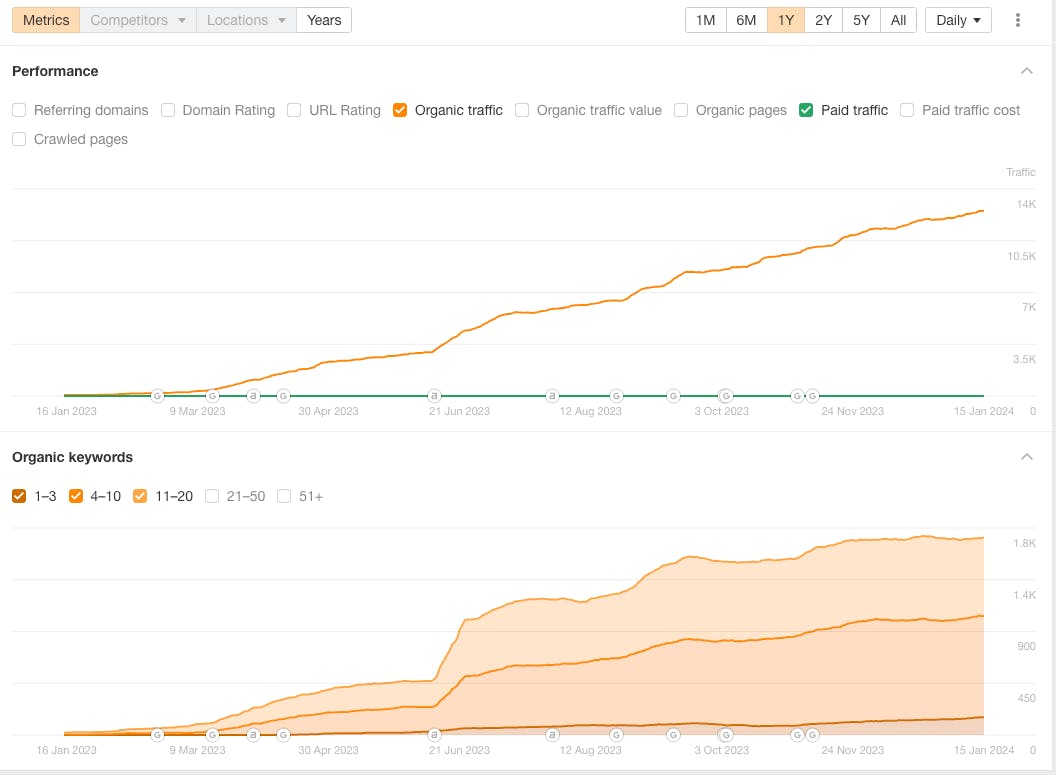
Unfortunately, we have no idea how many books we sell because of SEO. This is one of the major parts we need to work on!
Affiliates
Another channel we haven't thought about from the beginning was affiliates. We have about 10 affiliate members that sold 116 books in total:

Lemonsqueezy made it super easy to incorporate affiliates with their affiliate feature.
Our Creator/Book Stack
Blog: hashnode.com (I work there as well 😉)
Payment Platform: lemonsqueezy.com
Email: convertkit.com
Landingpage: tailwindui.com on Next.JS on AWS
Future?
What are we doing in the future?
Currently, we are creating another book, the CloudWatch Book. We'd love to earn a full-time income with our content strategy. For two people living in Europe, this is quite a bit.
This is why we are focussing on creating projects with a higher price point. We also want to start monetizing our newsletters with either job postings or sponsorships. Our goal is to do all of that without creating bad-quality content or selling something we don't want to sell.
If you are interested in more, e.g. the actual book writing process, or want any more data, please let us know!

